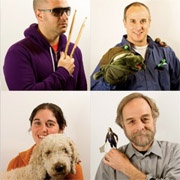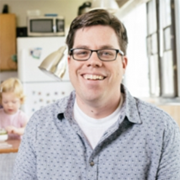Making a Better World | Teaching and Learning
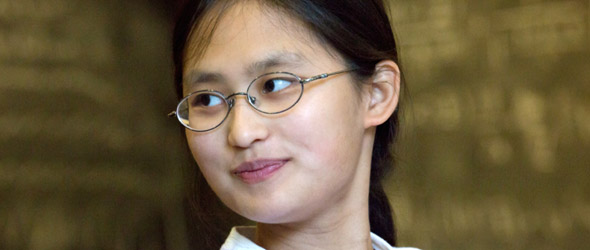
MIT aims to help provide access to a quality education by 2050 to anyone, anywhere, with the will to learn. A quality education is the foundation for economic and social progress for all people, but today, nearly 1 billion people around the world do not have access to a basic education. The MIT-SHASS disciplines contribute to meeting this goal in four primary ways:
Research to Policy
To help make education a universal reality, MIT's social science, arts, and humanities fields conduct research that informs public policy about education, and analyzes solutions to the array of economic, cultural, and political factors that create barriers to a good education.
Empowering every MIT student
MIT SHASS faculty also teach every MIT undergraduate. By empowering MIT students with political, economic, cultural, and historical perspectives — as well as skills in critical thinking, languages, and communication — the School increases the capacity of every MIT graduate to serve the world well, across the broad range of humanity's challenges.
International Education and Global Citizens
The SHASS faculty and coursework are also at the core of international education at MIT. Through all the SHASS disciplines and via MISTI — the School's applied international education program — MIT students learn how to collaborate and lead on teams around the globe.
Generating Online Educational Tools
MIT SHASS faculty are developing innovative MOOCs (massive online open courses) and other forms of online open access information. In addition to the course information itself, of interest are the ways the SHASS-generated MOOCs are exploring solutions to one of the greatest challenges of the MOOC concept: to translate the undisputed power of the small, discussion seminars and classes that characterize humanities education into the online, massive scale course formats.
Selected Stories
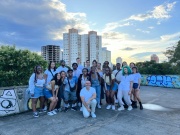
MIT SHASS undergraduates study race, place, and modernity in Brazil
MIT undergraduates visit São Paulo for the Independent Activities Period (IAP) subject “Race, Place, and Modernity in the Americas.
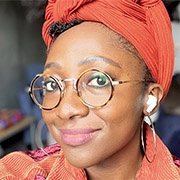
NEW RESEARCH FELLOWSHIP
New Shapiro Graduate Fellowship supports research on the History of the African-American Experience of Technology
HASTS PhD student Kelcey Gibbons is the inaugural recipient.
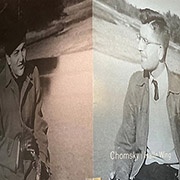
TRIBUTES + THE FUTURE
Linguistics luminaries Chomsky and Halle honored
A Stata Center wing celebrates their achievements— and the next generation of linguistics research at MIT.
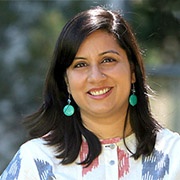
IN THE CLASSROOM | ON CULTURE
History Lab: 21H.S04
History class led by Associate Professor Sana Aiyar delves into South Asian experience at MIT via oral histories and the Institute Archives / Distinctive Collections

BASIC RESEARCH | LITERATURE
A Portal to Another World: Arthur Bahr and the 14th Century Pearl-Manuscript
"Pearl is my favorite poem in the world,” says Bahr, a professor of literature at MIT. “Its form is simply exquisite, and the story itself is bittersweet.” He adds that "the Pearl-Manuscript as a whole serves as “a useful reminder that seriousness of moral and theological purpose can coexist with vivacity and verve and fun."
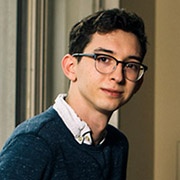
MEET THE MIT BILINGUALS
David Darrow '22 | Languages + Math
Darrow's languages (to-date) are German, French, Spanish — and Math, which he sees as "the language that the universe operates within." And by learning several human languages Darrow says he can connect to more experts — in math and many other topics.
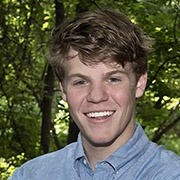
MEET THE MIT BILINGUALS
Ryan Conti '23 | Math/CS + Philosophy of Language
Preparing for a career advancing the science and policy of climate issues, Ryan Conti '23 focuses on math, computer science, and the philosophy of language.
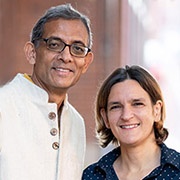
INSIDE THE CLASSROOM
The power of economics to explain and shape the world
In 14.009, a first-year class taught by Nobel laureates, MIT students discover how economics helps solve major societal problems.
BE YOUR WHOLE SELF AT MIT
The Power of the Humanities, Arts, and Social Sciences at MIT
"From climate change to poverty to disease, the challenges of our age are unwaveringly human in nature and scale; and engineering and science issues are always embedded in broader human realities, from deeply-felt cultural traditions to building codes to political tensions."
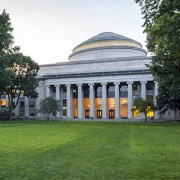
At MIT, the arts, humanities, design, and STEM fields forge an essential partnership
The humanistic fields are vital to solving the world’s most urgent problems. They also help students shape successful careers and meaningful lives, argue Agustín Rayo and Hashim Sarkis in a commentary for Times Higher Education
BE YOUR WHOLE SELF AT MIT
Gallery | Meet the Bilinguals
100% of MIT undergraduates study both the humanistic and sci/tech fields. And many go much deeper, often earning a degree or minor in a humanities, arts, or social science field, often alongside a STEM degree. Meet some of these students and learn more about their plans for the future.
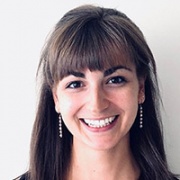
MEET OUR STUDENTS | PHILOSOPHY
Ethics in action: Sophie Gibert
Gibert, a PhD student in philosophy, discusses applying the tools of philosophy to ethical questions, in particular the ethics of health and healthcare.

NEW FACULTY GALLERY 2021
MIT SHASS welcomes six new faculty.
Our new faculty bring an array of research interests and domain knowledge to the School, including: ethical questions about misinformation and lying; macroeconomics; economic theory; transnational power and civic media; the literature and thought of East Asia; and the politics of trade.
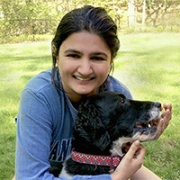
MEET THE MIT BILINGUALS
A Framework for Understanding the World: Natasha Joglekar '21
A CS + Biology major with a minor in Women's and Gender Studies, Joglekar found that her WGS coursework gave her powerful insight into the human factors that drive so many societal outcomes. “WGS studies helped give me a framework for understanding the world," she says, "in the same way my Physics and Math classes did."

HONORS AND AWARDS
Announcing the 2021 Levitan Teaching Award Winners
The James A. and Ruth Levitan Teaching Award, given annually by the MIT School of Humanities, Arts, and Social Sciences, honors the superlative teaching staff across the School. About the award, Dean Nobles says, "This prize honors instructors in our School who have demonstrated outstanding success in teaching our undergraduate and graduate students. These great educators, who are nominated by students themselves, represent the very best academic leadership in the School."
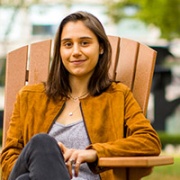
MEET THE MIT BILINGUALS
Kiara Wahnschafft '22 | Economics + MechE
Whether improving sanitation or addressing climate change, Wahnschafft is drawn to evidence-based methods for tackling social challenges.
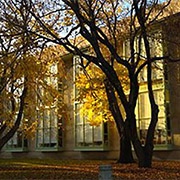
HONORS AND AWARDS
MIT SHASS names 36 extraordinary students as 2021 Burchard Scholars
The undergraduates selected for the competitive program enjoy a seminar series and conversations over dinners with distinguished faculty.

IN THE CLASSROOM
Inhabiting Science Fiction
Students in 21L.434 / "21st Century Science Fiction," taught by Assistant Professor Laura Finch, discover that the world-building of science fiction is not only a way to envision possible futures, but a powerful way to think about the world we currently inhabit.
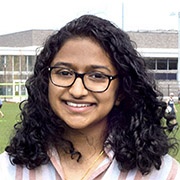
MEET THE MIT BILINGUALS
Anjali Nambrath '21 | Physics/Math + French & Theater
Nambrath says learning to see the world through a wide variety of lenses is crucial to success in her field. In physics, she explains, “the whole point is to find new ways of looking at the world. I think it’s super important as a human being to push the boundaries of knowledge, to find out more.”
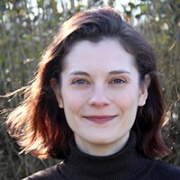
SOLVING CLIMATE
Caroline White-Nockleby, PhD student in MIT HASTS
Research to surface and address the socio-environmental complexities of renewable energy: "Renewables must be collected, stored, and transported; they require financing, metals extraction, and the processing of decommissioned materials. Energy access, mining, and waste deposition are material, geographically situated dynamics. Not everyone stands to benefit equally from renewable energy's potentials, and not everyone will be equally exposed to its socioenvironmental impacts."

IN THE CLASSROOM | PANDEMIC
For the pandemic, MIT History opens a course to the public via a free, live webinar format.
Hundreds from around the world responded to the opportunity and joined MIT students in the weekly class, "History of Now: Plagues and Pandemic." The experimental webinar format also greatly expanded the scope of expertise available to students, bringing in speakers from fields ranging from microbial biology to economics.
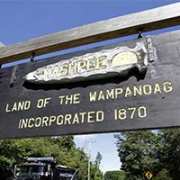
MAKING A JUST SOCIETY
Native American and Indigenous scholarship, education, and creativity in MIT's humanistic fields
This collection highlights works by and about Indigenous and Native American faculty, students, alumni, and visiting scholars in the humanities, arts, and social science fields in the MIT SHASS community.
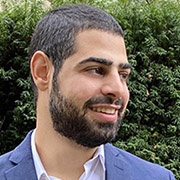
MEET OUR STUDENTS
Profile | Nasir Almasri '21
Political science PhD candidate studies conflicts that emerge at the intersection of politics and religious traditions, with a focus on humanizing those involved.
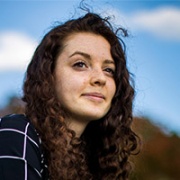
MEET THE MIT BILINGUALS
Darya Guettler ’21 | MechE + Political Science
Combining degrees in mechanical engineering and political science, MIT senior Darya Guettler '21 advocates for climate policy, sustainable technologies, and equitable, inclusive processes.
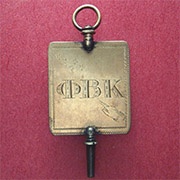
HONORS AND AWARDS
115 graduating MIT seniors inducted into the Phi Beta Kappa Society
A remarkable cohort of graduating seniors in the Class of 2020 were honored for excellence in the liberal arts.
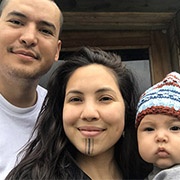
MIT INDIGENOUS LANGUAGE INITIATIVE
Saving Iñupiaq: Annauk Denise Olin
Olin, a graduate student in linguistics, is working to help her Alaska Native community preserve their language and navigate the severe impacts of climate change on their coastal village.

EDUCATION
MIT SHASS welcomes new faculty.
The School of Humanities, Arts, and Social Sciences warmly welcomes six new professors to the MIT community. They arrive with diverse backgrounds and vast knowledge in their areas of research, which include technology and identity; imperial and modern China; musical ensembles; immigration and voting law; cyber warfare; and the history of environmental management.
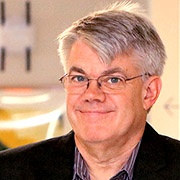
HONORS AND AWARDS
Stephen Morris named the inaugural Peter A. Diamond Professor of Economics
MIT Department of Economics establishes new professorship honoring Institute Professor and Nobel Laureate.

MEET THE MIT BILINGUALS
Salute to Seniors | Class of 2020
35 of the many outstanding MIT 2020 students who have focused on both humanistic and scientific/technical fields reflect on their MIT education — and their visions for the future.
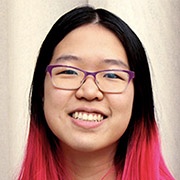
MEET THE MIT BILINGUALS
Kathryn Jiang ’20 | Literature + Mathematics
“Literature and math both try to explain how the world works; literature through stories and math through patterns," and these different perspectives are needed to solve today’s complex problems. “So much of this world is messy," Jiang says, "and MIT’s humanistic subjects give you a way to think about messy data, qualitative data. That’s really valuable.”
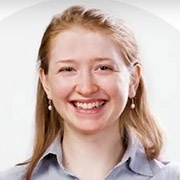
MEET THE MIT BILINGUALS
Emily Soice ’20 | Environmental Engineering + Music
"I came to MIT to be an environmental engineer. I've always loved the environment and wanted to protect it. We also need leadership, which is what I've learned the most in music."

IN THE CLASSROOM
Course Profile: Data and Society
A new course in the Computing and Society Concentration, taught by Eden Medina and Sarah Williams, engages MIT students in the ethics and societal implications of data.
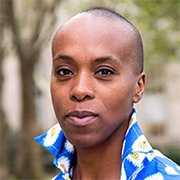
HONORS AND AWARDS
MIT Anthropologist Amah Edoh receives Baker Award for Excellence in Undergraduate Teaching
This Institute-wide award is given every year to an MIT faculty member, recognizing an “exceptional interest and ability in the instruction of undergraduates.” It is the only teaching award in which the nomination and selection of the recipients is done entirely by students.
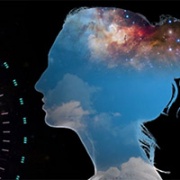
COMPUTING AND AI | HUMANISTIC PERSEPCTIVES FROM MIT
Computing and AI: Humanistic Perspectives from MIT
"With a sense of promise and urgency, we are embarked at MIT on an accelerated effort to more fully integrate the humanistic and technical forms of discovery in our curriculum and research, in our institutional structure, and in our habits of mind and action."
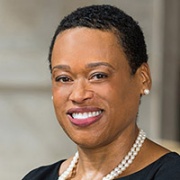
COMPUTING AND AI: HUMANISTIC PERSPECTIVES FROM MIT
Foreword | Melissa Nobles
Dean, MIT School of Humanities, Arts, and Social Sciences, 2015-2021; MIT Chancellor, 2021 —
"With a sense of promise and urgency, we are embarked at MIT on an accelerated effort to more fully integrate the humanistic and technical forms of discovery in our curriculum and research, in our institutional structure, and in our habits of mind and action. Together, the commentaries in this series offer a guidebook to myriad productive ways that humanistic, scientific, and technical fields can join forces at MIT and elsewhere."

ETHICS, COMPUTING, AND AI
Ethics, Computing, and AI | Perspectives from MIT
To support ongoing planning for the Stephen A. Schwarzman College of Computing, Dean Melissa Nobles invited faculty from all five MIT schools to offer perspectives on the societal and ethical dimensions of emerging technologies. This series presents the resulting commentaries — practical, inspiring, concerned, and clear-eyed views from an optimistic community deeply engaged with one of the most consequential questions of our time.
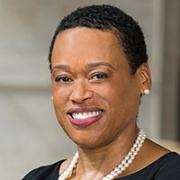
ETHICS, COMPUTING, AND AI | PERSPECTIVES FROM MIT
Foreword | Melissa Nobles
"These commentaries implore us to be collaborative, foresighted, and courageous as we shape the new Stephen A. Schwarzman College of Computing, and to proceed with judicious humility. Rightly so. We are embarking on an endeavor that will influence nearly every aspect of the human future."
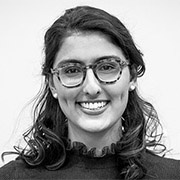
MEET THE MIT BILINGUALS
Talia Khan '20 | Materials Science + Music
“When I was looking for a university, I wanted one with access to top-quality music teachers and top-quality science. MIT really fit the bill. At MIT, we have the same quality of music education as conservatories, and you also have the rest of the MIT education.”
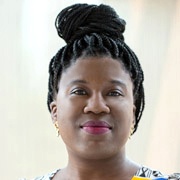
INNOVATION
3Q with Sandy Alexandre: On the literary roots of many technological innovations
In 2019, Alexandre was awarded a prestigious Bose Research Grant, which supports her study of the under-explored phenomenon of ideas that first appear in speculative fiction becoming technological and social reality.
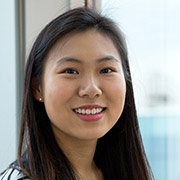
MEET THE MIT BILINGUALS
Christine Soh '20 | CS/Engineering + Linguistics
With her dual degrees, Soh is prepared to make new tools in computational linguistics. Potential applications include improving speech recognition software and making machine-produced speech sound more natural.
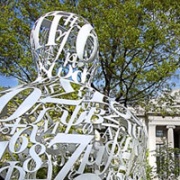
HONORS AND AWARDS
38 MIT students selected as 2020 Burchard Scholars
The selective Burchard Scholars program recognizes students who have demonstrated outstanding abilities and academic excellence in some aspect of the humanistic fields — the humanities, arts, and social sciences — as well as in the STEM fields.
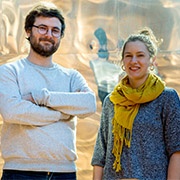
ETHICS OF TECHNOLOGY
3Q with Marion Boulicault and Milo Phillips-Brown
on integrating ethics into a technical curriculum
"The approach we are piloting at MIT is teaching ethics as a set of skills (what Aristotle would call techné). If we’re going to make a difference in whether our students make things ethically and responsibly, they need ethical skills that they can apply to their own work."
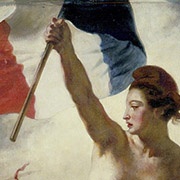
INSIDE THE CLASSROOM
How to Stage a Revolution: History 21H.001
MIT history class explores the roots and complexities of revolutions across the globe. From early printing presses to changing fuel sources to the reach of global social media, the technological contexts of revolutions are intrinsic to understanding them.
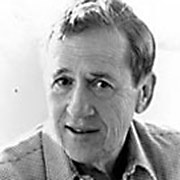
CELEBRATING SCHOLARSHIP
Celebrating Leo Marx on his 100th birthday
Over 40 years, the influential historian helped build MIT's Program in Science, Technology, and Society into a world leader in the field.
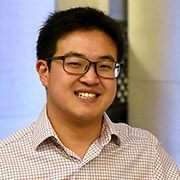
MEET OUR DOCTORAL STUDENTS
Meet Timothy Loh, doctoral student in the MIT HASTS program
“MIT is the best place to be an anthropologist studying issues of science and technology. It’s a place where we’re able to think deeply and critically about how scientific knowledge and authority is constructed."
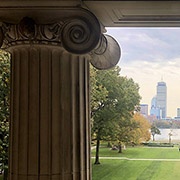
HONORS AND AWARDS
MIT ranked No.1 worldwide for Economics and Business for 2020
Times Higher Education awards top honors to fields in MIT SHASS and MIT Sloan for the second year in a row.
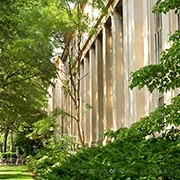
HONORS AND AWARDS
MIT ranked No.1 worldwide for the Social Science fields for 2020
“Our social structures, systems of governance, and means of communication demand crucial examination, both historically and predictively," says Dean Melissa Nobles. "MIT’s scholars make vital contributions to the social science fields, and also prepare students in both humanistic and technical programs to understand the larger context of the world in which they’re living.”
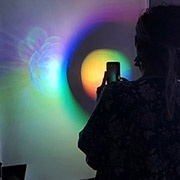
INSIDE THE CLASSROOM
The Technology of Enchantment
In a new Anthropology + Studio Art maker class, MIT students investigate the human dimensions of interacting with technologies.
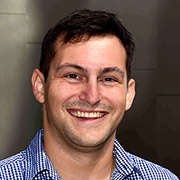
VOICES OF MIT SHASS GRADUATE STUDENTS
Meet Marc Aidinoff, PhD candidate
"What does it mean when civil rights become about access to computers and the Internet? When lack of Internet access is considered a form of poverty? These questions were getting under my skin. I wanted to know how social and economic policy were tied to changing ideas about technology."
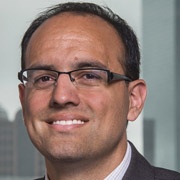
HONORS AND AWARDS
MIT Economist Parag Pathak honored by Science News
Pathak, the Jane Berkowitz Carlton and Dennis William Carlton Professor of Microeconomics at MIT, has been named by Science News as one of 10 early- and mid-career scientists with great potential to shape the future of their field.
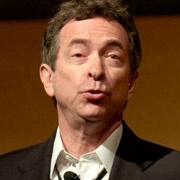
How Christopher Weaver transformed video games and game studies
Weaver revolutionizes video games with physics, design, virtual reality, storytelling, and games for social change.
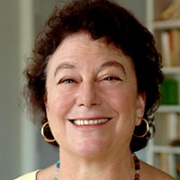
COMPUTING AND AI: HUMANISTIC PERSPECTIVES FROM MIT
Women and Gender Studies | Ruth Perry, Sally Haslanger, Elizabeth Wood
"The Schwarzman College of Computing presents MIT with a unique opportunity to take a leadership role in addressing some of most pressing challenges that have emerged from the ubiquitous role computing technologies now play in our society — including how these technologies are reinforcing and even exacerbating social inequalities."
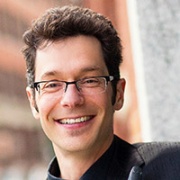
COMPUTING AND AI: HUMANISTIC PERSPECTIVES FROM MIT
Music | Eran Egozy
"Through the MIT Schwarzman College of Computing, our responsibility will be not only to develop the new technologies of music creation, distribution, and interaction, but also to study their cultural implications and define the parameters of a harmonious outcome for all."
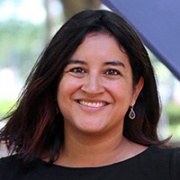
COMPUTING AND AI: HUMANISTIC PERSPECTIVES FROM MIT
Science, Technology, and Society | Eden Medina and Dwai Banerjee
"A more global view of computing would demonstrate a broader range of possibilities than one centered on the American experience, while also illuminating how computer systems can reflect and respond to different needs and systems."
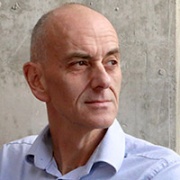
COMPUTING AND AI: HUMANISTIC PERSPECTIVES FROM MIT
Philosophy | Alex Byrne and Tamar Schapiro
“The new College of Computing presents an opportunity for MIT to be an intellectual leader in the ethics of technology. The Ethics Lab we propose could turn this opportunity into reality."
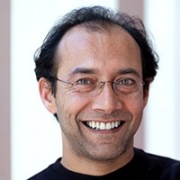
COMPUTING AND AI: HUMANISTIC PERSPECTIVES FROM MIT
Literature | Shankar Raman with Mary C. Fuller
"At least three priorities of current literary engagement with the digital should be integrated into the SCC’s research and curriculum: democratization of knowledge; new modes of and possibilities for knowledge production; and critical analysis of the social conditions governing what can be known and who can know it."
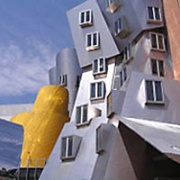
COMPUTING AND AI: HUMANISTIC PERSPECTIVES FROM MIT
Linguistics | Faculty of MIT Linguistics
“Crucially, nearly all transformative new tools have come from researchers at institutions where linguists work side-by-side with computational researchers who are able to translate back and forth between computational properties of linguistic grammars and of other systems.”
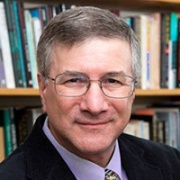
COMPUTING AND AI: HUMANISTIC PERSPECTIVES FROM MIT
History | Jeffrey S. Ravel
"The nuanced debates in which historians engage about causality provide a frame of reference for considering the issues that will inevitably emerge from new computing technologies. We may not be doomed to repeat the past if we do not study it. But we certainly miss an opportunity to imagine our way out of today’s existential threats if we do not appreciate the complexity of past crises."
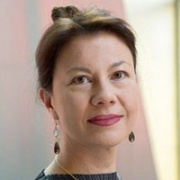
COMPUTING AND AI: HUMANISTIC PERSPECTIVES FROM MIT
Global Languages | Emma Teng, with colleagues
"Language and culture learning is a gateway to international experiences and an important means to develop cross-cultural understanding and sensitivity. Such understanding is essential to addressing the social and ethical implications of the expanding array of technology affecting everyday life across the globe."
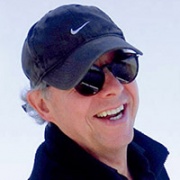
COMPUTING AND AI: HUMANISTIC PERSPECTIVES FROM MIT
Comparative Media Studies | William Uricchio
"Given our research and practice focus, the CMS perspective can be a key one for understanding the implications of computation for knowledge and representation, as well as computation’s relationship to the critical process of how knowledge works in culture — the way it is formed, shared, and validated."

COMPUTING AND AI: HUMANISTIC PERSPECTIVES FROM MIT
Political Science | Faculty of the Department
"The advance of computation gives rise to a number of conceptual and normative questions that are political, rather than ethical, in character. Political science and theory have a significant role in addressing such questions as: How do major players in the technology sector seek to legitimate their authority to make decisions that affect us all? And where should that authority actually reside in a democratic polity?"
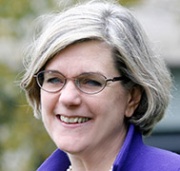
COMPUTING AND AI: HUMANISTIC PERSPECTIVES FROM MIT
Economics | Nancy L. Rose and David Autor
"The affinity between economics and computer science traces back almost a century, to the founding of game theory in 1928. Today, the practical synergies between economics and computer science are flourishing. We outline some of the many opportunities for the two disciplines to engage more deeply through the new MIT Schwarzman College of Computing."
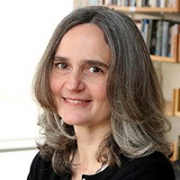
COMPUTING AND AI: HUMANISTIC PERSPECTIVES FROM MIT
Anthropology | Heather Paxson
"Incorporating anthropological thinking into the new College of Computing promises to help students become more effective and responsible coders, designers, and engineers. The study of anthropology can prepare students to live and work effectively and responsibly in a world of technological, demographic, and cultural exchanges."
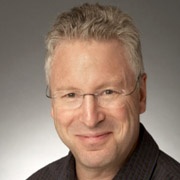
COMPUTING AND AI: HUMANISTIC PERSPECTIVES FROM MIT
Writing | Thomas Levenson
"Computation and its applications in fields that directly affect society cannot be an unexamined good. Professional science and technology writers are a crucial resource for the mission of the SCC, and they need to be embedded within its research apparatus."
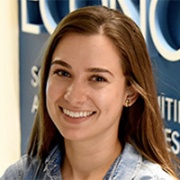
VOICES OF MIT SHASS GRADUATE STUDENTS
Meet Carolyn Stein: MIT Economics PhD student researches the economics of science
"Scientists are often motivated by factors other than wages, but many insights from labor economics still help us understand how the field of science functions."

GALLERY | NEW FACULTY 2019
Seven new faculty members join MIT SHASS
Dean Melissa Nobles and the School of Humanities, Arts, and Social Sciences are pleased to welcome the newest members of the MIT SHASS faculty. They come with diverse and broad research interests, from environmental economics to language formation to the history of the Chernobyl disaster.
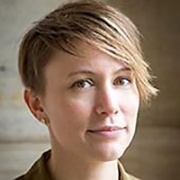
COMPUTING AND AI: HUMANISTIC PERSPECTIVES FROM MIT
Theater Arts | Sara Brown
"As a subject, artificial intelligence (AI) problematizes what is means to be human. There are an unending series of questions posed by the presence of an intelligent machine. The theater, as a synthetic art form that values and exploits liveness, is an ideal place to explore the complex and layered problems posed by AI and advanced computing."
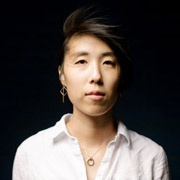
A scholar and teacher re-examines moments in the history of STEM
“I love teaching,” says PhD student Clare Kim. “It’s not that I’m just imparting knowledge, but I want [my students] to develop a critical way of thinking.”
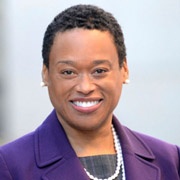
3 Questions: The social implications and responsibilities of computing
In helping envision the MIT Schwarzman College of Computing, working group is focusing on ethical and societal questions.
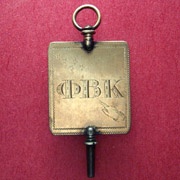
STUDENT HONORS
76 MIT seniors inducted into the Phi Beta Kappa Society
PBK honors the nation’s most outstanding undergraduate students for excellence in the liberal arts, which include the humanities and the natural and social science fields. Only 10 percent of higher education institutions have PBK chapters, and fewer than 10 percent of students at those institutions are selected for membership.
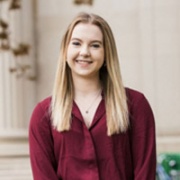
Merging machine learning, the life sciences, and linguistics
Through computing, senior and Marshall Scholar Anna Sappington seeks answers to biological questions.
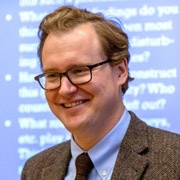
The quest to understand human society scientifically
In STS.047 (Quantifying People), MIT students explore the history of science from the 17th century to the present, through the eyes of statisticians and sociologists.
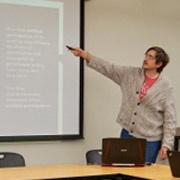
A stage of their own
Presentation workshop for political science graduate students serves as training ground for research and professional skills.
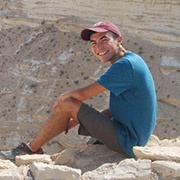
Cornerstone donation sparks bright future for MISTI's MIT-Israel
In the first major step toward solidifying a future for MISTI’s MIT-Israel program, Arthur J. Samberg SB ‘62 has made a 1 million dollar donation. The gift is a foundational move in making sure the program — a critical bridge between MIT and Israel for over a decade — will be able to continue supporting student and faculty work for years to come.
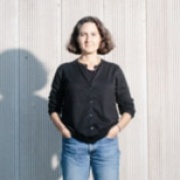
3 Questions: Why are student-athletes amateurs?
MIT Professor Jennifer Light digs into the history of the idea that students aren’t part of the labor force.
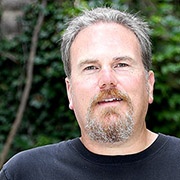
MIT HiSTORY SERIES ON DIGITAL HUMANITIES | 3
Computation and the practice of 21st-century history
In a talk at MIT, Professor William J. Turkel, PhD'04, described the techniques and tools he uses in his study of global21st-century history.
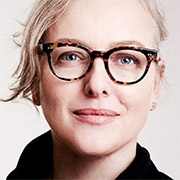
MIT HISTORY SERIES ON DIGITAL HUMANITIES | 2
Digital Zombies and Virtual Reality: Juliette Levy on history in the digital classroom
"Weekly podcasts, a virtual reality experience involving Che Guevara, and a learning game with zombies are among the digital platforms a history professor has used to enhance her teaching and make the subject engaging, especially for large classes of hundreds of students."
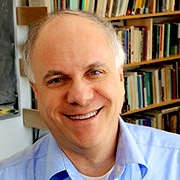
3 Questions: David Pesetsky on the field of linguistics
Solving language puzzles, linguists shed light on deep properties of the human mind, on language acquisition in children, on machine learning, social interactions, and meaning itself. David Pesetsky, an internationally acclaimed linguistic scholar, is the Ferrari P. Ward Professor of Modern Languages and Linguistics at MIT.
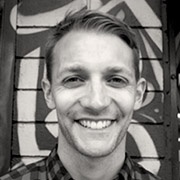
MIT HiSTORY SERIES ON DIGITAL HUMANITIES | 1
Talk by Cameron Blevins launches MIT Digital History Seminar Series
“This seminar series is part of our ongoing exploration of computational methods and digital media for research and teaching in the history field. Writ large, this new series is a space for us to reflect on our engagement with the new MIT Schwarzman College of Computing" — Jeffrey Ravel, head of MIT History
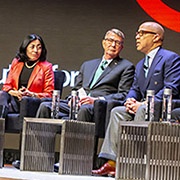
ETHICS, COMPUTING, AND AI
Making the path to ethical, socially beneficial AI
At celebration for the new MIT Schwarzman College of Computing, leaders from government, philanthropy, academia, and industry say collaboration is the key.
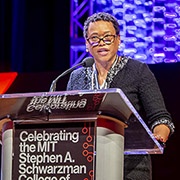
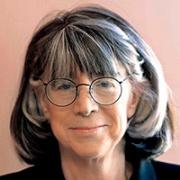
ETHICS, COMPUTING, AND AI
Welcoming Remarks | Susan S. Silbey
Celebration for the MIT Schwarzman College of Computing
28 February 2019
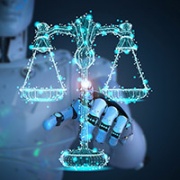
ETHICS, COMPUTING, AND AI | PERSPECTIVES FROM MIT
The Tools of Moral Philosophy | Caspar Hare and Kieran Setiya
"Framing a discussion of the risks of advanced technology entirely in terms of ethics suggests that the problems raised are ones that can and should be solved by individual action. In fact, many of the challenges presented by computer science will prove difficult to address without systemic change.”
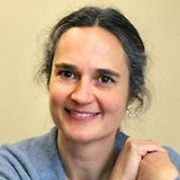
ETHICS, COMPUTING, AND AI | PERSPECTIVES FROM MIT
Computing is Deeply Human | Stefan Helmreich and Healther Paxson
“Computing is not an external force that has an ‘impact’ on society; instead, society is built right into making, programming, and using computers. The computational is political. MIT can make that recognition one of the pillars of its aspiration to help build a better world."
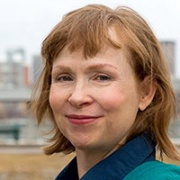
ETHICS, COMPUTING, AND AI | PERSPECTIVES FROM MIT
The Common Ground of Stories | Mary Fuller
“Stories allow us to model interpretive, affective, ethical choices; they also become common ground, conceptual meeting places that can serve to gather very different kinds of interlocutors around a common object. We need these.”
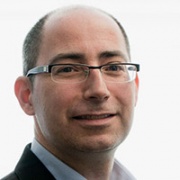
ETHICS, COMPUTING, AND AI | PERSPECTIVES FROM MIT
Blind Spots | David Kaiser
“MIT has a powerful opportunity to lead in the development of new technologies while also leading careful, deliberate, broad-ranging, and ongoing community discussions about the “whys” and 'what ifs,' not just the 'hows.' No group of researchers, flushed with the excitement of learning and building something new, can overcome the limitations of blind spots and momentum alone."
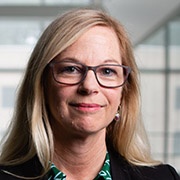
ETHICS, COMPUTING, AND AI | PERSPECTIVES FROM MIT
Addressing the Societal Implications of AI | Lisa Parks
"Given the power of AI tools to impact human behavior and shape planetary conditions, it is vital that a political, economic, and materialist analysis of the technology’s relation to global trade, governance, natural environments, and culture be conducted."
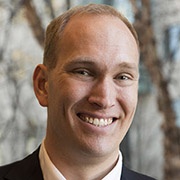
ETHICS, COMPUTING, AND AI | PERSPECTIVES FROM MIT
Clues and Caution for AI from the History of Biomedicine
Robin Wolfe Scheffler
"The very intractability of biology and medicine to computation makes their history an essential counterpoint to more optimistic contemporary discussions of the challenges and opportunities for AI in society. Their past underlines two major points: ‘Quantification is a processes of judgment and evaluation, not simple measurement’ and ‘Prediction is not destiny.’”
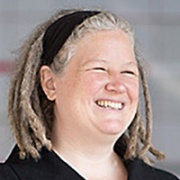
ETHICS, COMPUTING, AND AI | PERSPECTIVES FROM MIT
The Environment for Ethical Actions | T.L. Taylor
"We can cultivate our students as ethical thinkers but if they aren’t working in (or studying in) structures that support advocacy, interventions, and pushing back on proposed processes, they will be stymied. Ethical considerations must include a sociological model that focuses on processes, policies, and structures and not simply individual actors."
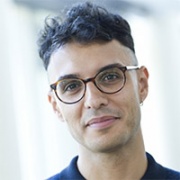
ETHICS, COMPUTING AND AI | PERSPECTIVES FROM MIT
Machine Anxiety | Bernardo Zacka
"To someone who studies bureaucracy, the anxieties surrounding artificial intelligence have an eerily familiar ring. So too does the excitement. For much of the 20th century, bureaucracies were thought to be intelligent machines, with all the positive and negative connotations the term carries."
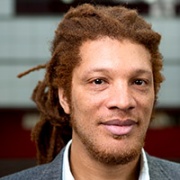
ETHICS, COMPUTING, AND AI | PERSPECTIVES FROM MIT
A Dream of Computing | D. Fox Harrell
"We must be vigilant stewards of the future of computing at MIT. We must reimagine our shared dreams for computing technologies as ones where their potential social and cultural impacts are considered intrinsic to the engineering practices of inventing them."
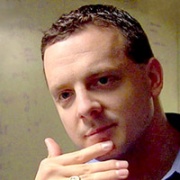
ETHICS, COMPUTING AND AI | PERSPECTIVES FROM MIT
A Network of Practitioners | Nick Montfort
"The new college presents an opportunity for many practitioners of computing at MIT. We should use this chance to build a truly robust network and to make many relevant types of connections."
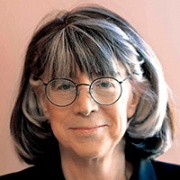
ETHICS, COMPUTING, AND AI | PERSPECTIVES FROM MIT
Two Commentaries | Susan S. Silbey, Chair of the MIT Faculty
Letters from the MIT Faculty Chair on teaching ethics, and on forming the new MIT Stephen A. Schwarzman College of Computing.
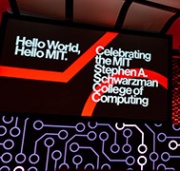
News about the MIT Stephen A. Schwarzman College of Computing
Announcements, Letters, Updates
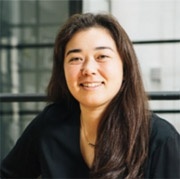
Building a more inclusive future, worldwide
An avid traveler, organizer, and educator, senior Kathleen Schwind helps others develop skills in negotiation and leadership.
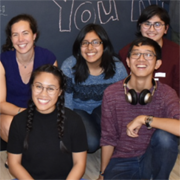
Starting new conversations about identity abroad
New MISTI programs provide a platform for student dialogue on diversity in international travel, study, and work.
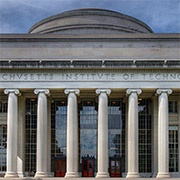
MIT ranked No. 1 university worldwide for Economics and Business - 2019
The Times Higher Education World University Ranking system determines a university’s quality in a given subject area by examining five areas: the learning environment; the volume, income, and reputation of its research; the influence of its citations in other research; the international outlook of its staff, students, and research; and its knowledge transfer to various industries.
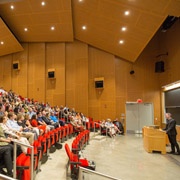
MIT Phi Beta Kappa Society inducts 77 students from the Class of 2018
New members achieved exceptional excellence in both the humanities and science scholarship.
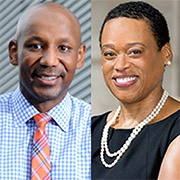
21st C. CITIZENSHIP | LEGACY OF SLAVERY
3Q Interview with Dean Nobles, Professor Wilder
"The MIT community has the opportunity to be involved in this endeavor in real time, learning from the emerging findings. and making informed suggestions to the leadership about potential responses." — Dean Melissa Nobles

MAKING A JUST SOCIETY
MIT and the Legacy of Slavery Project
Stories, Videos, Community Dialogue
“I believe the work of this class is important to the present — and to the future. Something I have always loved about the MIT community is that we seek, and we face, facts. What can history teach us now, as we work to invent the future? How can we make sure that the technologies we invent will contribute to making a better world for all?" — L. Rafael Reif, President of MIT
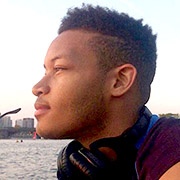
From blank verse to blockchain
The founder of a startup at the cutting edge of computer science, Ryan Robinson ’17 says that his MIT background in the humanities and engineering has helped him understand the human dimensions of the world’s greatest challenges.
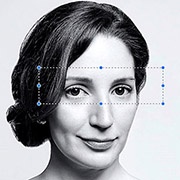
INSIDE THE CLASSROOM
Hacking virtual reality | CMS.339
Contributing to a culture of pioneers, MIT students in "Virtual Reality and Immersive Media Production" explore the technical, philosophical, and artful dimensions of VR.
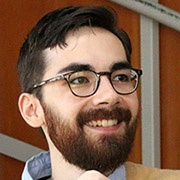
CITIZENSHIP | IMPACT OF LANGUAGE
Applying philosophy for a better democracy
In a new philosophy class, MIT students explore how language affects censorship, dissent, lies, and propaganda.
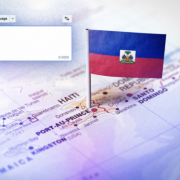
TEACHING AND LEARNING
MIT-Haiti, Google team up to boost education in Kreyòl
Effort to create STEM lexicon, led by linguistics faculty Michele Degraff, is now available for global translation.

21ST CENTURY CITIZENSHIP
Connecting through conversation
Whether in Cambridge or Shanghai, MIT senior Joshua Charles Woodard '17 seeks to learn from others’ perspectives and challenge his own.
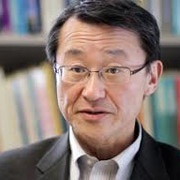
Q&A with digital learning pioneer Shigeru Miyagawa
On interdisciplinary approaches to digital learning
"The MIT Office of Digital Learning (ODL) is actively reaching out to faculty across MIT to help them leverage digital learning to improve teaching and learning, and I am glad to be contributing to that."
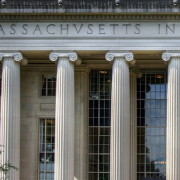
CORE
MIT named No. 2 university worldwide for the Arts and Humanities - 2018
At MIT, two schools — the School of Architecture and Planning, and the School of Humanities, Arts, and Social Sciences — and several centers are home to the arts and humanities.

PLANETARY HEALTH
Citizen Science and the Wild workshop illuminates the value of multidisciplinary research.
Convened by MIT historian Harriet Ritvo, the workshop drew an unusual variety of MIT experts together, including historians of science, anthropologists, scientists, and museum professionals.
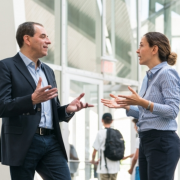
TEACHING AND LEARNING
Two sciences tie the knot
A new major combining computer science and economics will prepare students for designing the virtual marketplaces of the future.
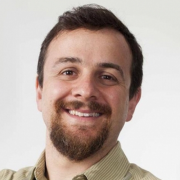
TEACHING AND LEARNING
Increasing equity through educational technology
CMS/W Assistant Professor Justin Reich looks to transform educational settings by equipping teachers with the technology tools they need to best serve all students.
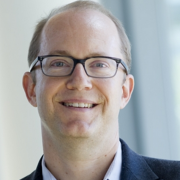
TEACHING AND LEARNING
Political science debuts on MITx
“Democracy and Development: Perspectives from Africa” is the first MIT Political Science class produced exclusively for edX, the multi-university online education platform.
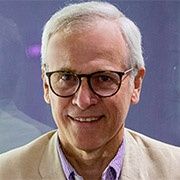
John Durant plans a new era for the MIT Museum
Bridging science, technology, the arts, humanities, and the social sciences MIT Museum Director John Durant makes plans to engage the public with a new purpose-driven museum space.
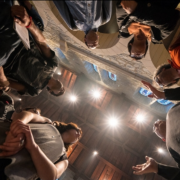
TEACHING AND LEARNING
In search of a meaningful life
Popular MIT anthropology course offers contemplation and dialogue on life's big questions.
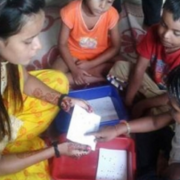
TEACHING AND LEARNING
Preschoolers learn from math games — to a point
Games found to improve conceptual math skills, but gains may not carry over to primary school.
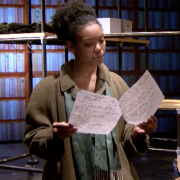
TEACHING AND LEARNING
Practicum: Directing Einstein's Dreams
Neerja Aggarwal, SB ’17, MEng ’18, discusses the rewards and challenges of directing Einstein's Dreams, an adaptation of the acclaimed novel by MIT faculty member and author, Alan Lightman.

TEACHING AND LEARNING
MIT Chapter of the Phi Beta Kappa Society inducts 74 graduates of the Class of 2017
The Phi Beta Kappa Society, the nation’s oldest academic honor society, this year admitted 74 graduating seniors into the MIT chapter, Xi of Massachusetts.
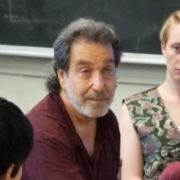
TEACHING AND LEARNING | SOCIAL INNOVATION
Breaking down walls between the ivory tower and prison
The MIT Prison Initiative provides an academic framework for undergraduates and local inmates to explore the human condition.

TEACHING AND LEARNING
Testing the metrics
MIT researchers refine yardstick for measuring schools and teachers.

TEACHING AND LEARNING
"Mens et manus" goes global
MIT International Science and Technology Initiatives program will send students to six continents this summer.
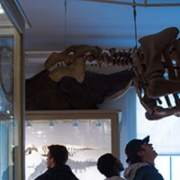
TEACHING AND LEARNING
Entering the animal world
In a history seminar, engineering students explore shifting ideas about animal intelligence and human uses of animals throughout the ages.
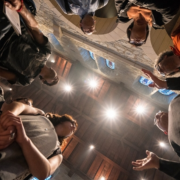
TEACHING AND LEARNING
In search of a meaningful life
Popular MIT anthropology course offers contemplation and dialogue on life's big questions.
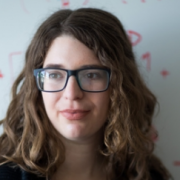
An economist delves into charter schools
PhD student Elizabeth Setren brings data to bear on questions about charter schools and local education policy.
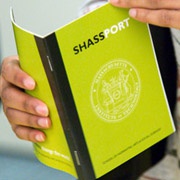
EDUCATION: STEM + SHASS = MIT
Hundreds of MIT students take the 2016 TOUR de SHASS
At MIT, every undergraduate receives a balanced STEM + SHASS education — with 25% of required classes in the humanities, arts, and social sciences. At the annual TOUR de SHASS academic fair, MIT students meet SHASS faculty, and discover the great diversity of classes in MIT's humanities, arts, and social sciences fields.
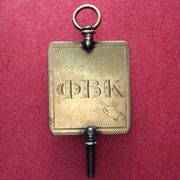
TEACHING AND LEARNING
MIT Chapter of the Phi Beta Kappa Society inducts 72 graduating seniors
The Phi Beta Kappa Society, the nation’s oldest academic honor society, held its MIT induction ceremony on Thursday, June 2, admitting 72 graduating seniors into the MIT chapter, Xi of Massachusetts.
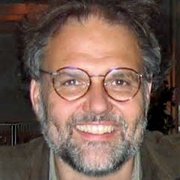
TEACHING AND LEARNING
Kurt Fendt of CMS/W receives MIT Teaching with Digital Technology Awards
Co-sponsored by the Office of Digital Learning (ODL), the Dean of Undergraduate Education (DUE) and the Office of the Dean for Graduate Education (ODGE), the student-nominated awards recognize faculty and instructors who have effectively leveraged digital technology to improve teaching and learning at MIT.

CORE
9 SHASS faculty members awarded named professorships
MIT's School of Humanities, Arts, and Social Sciences is very pleased to announce that nine members of its faculty have been awarded named professorships. These honored positions afford the faculty member additional support to pursue their research and develop their careers.
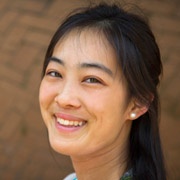
MEET THE MIT BILINGUALS
Cara Lai '16 cites MIT Literature as key to her preparation for medical practice.
Lai, who graduates with degrees in both Literature and Mechanical Engineering, is en route to Stanford University's School of Medicine. In this story she explains how MIT Literature provided her with tools critical to the practice of medicine.
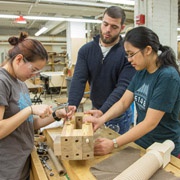
TEACHING AND LEARNING
In the MIT History Workshop — where building a printing press illuminates human systems
A group of MIT students briefly put away their cell phones this spring to concentrate on a much older information storage and retrieval device: the book. As students built a handset printing press — the kind of press on which the documents of the Renaissance, the Reformation, and the Scientific Revolution were printed — they also gained insight into human systems.
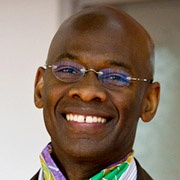
TEACHING AND LEARNING
Remarks by Michel DeGraff, upon receiving the 2016 MIT Martin Luther King Jr. Leadership Award
Michel DeGraff, MIT-SHASS Professor of Linguistics, is a founding member of Haiti's newly created Haitian Creole Academy (Akademi Kreyòl Ayisyen) and Director of the MIT-Haiti Initiative.
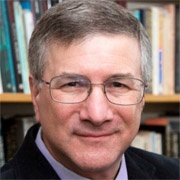
CORE | TEACHING AND LEARNING
3 Questions: Jeffrey Ravel on bringing data to cultural history
Centuries from now, will anyone remember the hit Broadway show “Hamilton?” Will they know how popular it was? As it happens, historians do know a great deal about Enlightenment-era French theater, and they continue to learn more — thanks in part to the Comédie Française Registers Project (CFRP), an ongoing effort led by Jeffrey Ravel, head of the MIT History faculty.
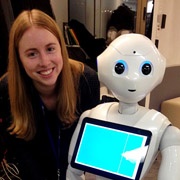
INTERNATIONAL EDUCATION
Around the World | Snapshots from MISTI
A slide show of photos and reflections from students in MIT's flagship international education program
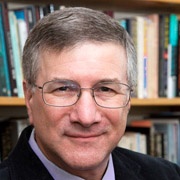
TEACHING AND LEARNING
Ravel awarded grant from National Park Service for Visualizing Maritime History project
The National Park Service, with the Maritime Administration, announced the award of a $50,000 grant in support of the Visualizing Maritime History Project, led by Jeffrey Ravel, MIT SHASS Professor of History.
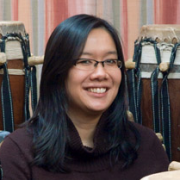
CORE
Patricia Tang named a MacVicar Faculty Fellow
“It is a tremendous honor to be selected as a MacVicar Faculty Fellow. I am truly humbled," said Tang. "As an ethnomusicologist, I love many aspects of my job, but there is nothing more gratifying than sharing my passion for African music with MIT students, and giving them tools to better understand music and its broader cultural contexts."
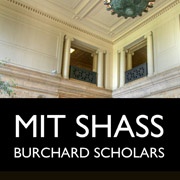
TEACHING AND LEARNING
35 Burchard Scholars announced for 2016
The award honors sophomores and juniors who demonstrate academic excellence in the humanities, arts, and social sciences, as well as in science and engineering. “The Burchard scholars are some of MIT’s liveliest undergraduates,” says Margery Resnick, professor of literature and director of the Burchard Scholars Program. “Selection is extremely competitive, and the students chosen are unafraid to wrestle with new ideas.”
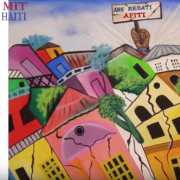
THE HUMAN FACTOR | NATIVE LANGUAGES
The importance of native languages in education
This video provides a short overview of the science and data that show why children's native languages are necessary for learning to read and write — and everything else.

BASIC RESEARCH + CORE
MIT named among three top universities in the world for humanities, arts
The Times Higher Education 2015 World University Rankings has named MIT one of the top three universities worldwide for arts and humanities education. The three top ranked universities — Stanford University, Harvard University, and MIT — are closely aligned in the evaluation metrics.
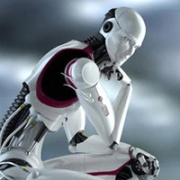
EDUCATION
MIT-SHASS MOOC courses available on edX
Discover the MIT-SHASS courses available online at edX — free, for anyone, anywhere.
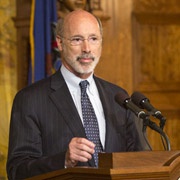
Q&A with Pennsylvania Governor Tom Wolf PhD '81
On making good policy; the politics of global issues
"The search for the answers to society’s most pressing questions always involves a political science dimension. Politics is the art of figuring out what you want to do, how you’re going to do it, and how you’re going to convince others to go along with what you want to do."
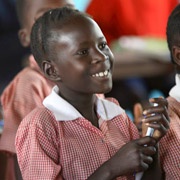
RESEARCH TO POLICY: EDUCATION
Testing Student Learning
Numerous strategies to improve student learning have been evaluated by J-PAL, and found to have widely different impacts. These different strategies also incur drastically different costs, and some programs therefore achieve learning gains with much greater cost-effectiveness than others.

RESEARCH TO POLICY: EDUCATION
Studying school quality, to fight inequality
MIT economists Parag Pathak, Joshua Angrist, and David Autor founded the School Effectiveness & Inequality Initiative (SEII), a new center at MIT giving a home to diverse studies of education and its effects on Americans throughout their working lives.
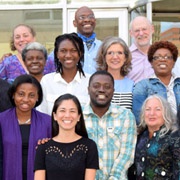
RESEARCH TO POLICY: EDUCATION
Haitian educators and MIT faculty develop Kreyòl-based teaching tools
Six veteran educators from Haiti — two biologists, two physicists, and two mathematicians — were on campus recently to work closely with MIT faculty to develop and hone Kreyòl-based, technology-enhanced pedagogical tools for STEM education.
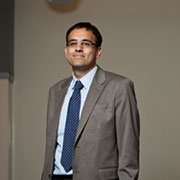
RESEARCH TO POLICY: EDUCATION
MIT economist Parag Pathak engineers practical solutions to complicated education problems
For students in New York and Boston, who have a range of options beyond their neighborhood school, choosing a high school used to be a maddeningly complicated guessing game. Just a decade ago, it seemed like an intractable problem. But that has changed, thanks in part to a graduate student — now an MIT professor — named Parag Pathak.
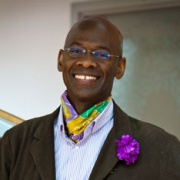
RESEARCH TO POLICY: EDUCATION
Linguist Michel DeGraff is revolutionizing education in Haitian Kreyòl and other local languages
With his MIT-Haiti Inititiave, MIT-SHASS Professor of Linguistics Michel DeGraff is creating a historic new model for reaching science-hungry students around the world who speak local languages. A revolution in education is underway that will touch populations across the globe.
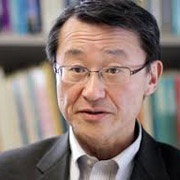
EDUCATION: HUMANITIES MOOC
"Visualizing Japan" humanities MOOC nominated for the Japan Prize: Interview with Shigeru Miyagawa
“Visualizing Japan”—a massive open online course (MOOC) co-taught by Shigeru Miyagawa and others—has been nominated for the Japan Prize, a prestigious international prize awarded to educational broadcast and digital media programs selected from around the world.
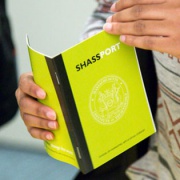
EDUCATION: STEM + SHASS = MIT
Hundreds of MIT students take the TOUR de SHASS 2015
At MIT, every undergraduate receives a balanced STEM + SHASS education — with 25% of required classes in the humanities, arts, and social sciences. At the annual TOUR de SHASS academic expo, MIT students meet SHASS faculty, and discover the great diversity of classes in MIT's humanities, arts, and social sciences fields. Plus, free lunch!

EDUCATION: INTERNATIONAL
Training MIT’s “Innovation Diplomats”
Each year, hundreds of MIT students travel abroad to conduct research through MISTI, the Global Entrepreneurship Lab, and other programs. The new iDiplomats program aims to transform the experience of students traveling abroad with advice on how to be unofficial “innovation diplomats” for MIT.

CORE: EDUCATION
TOUR de SHASS 2015 on September 10
Event offers students the chance to meet professors and learn about MIT’s many options in the humanities, arts, and social sciences.
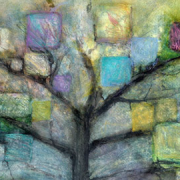
CORE + EDUCATION
New Faculty, Fall 2015
The School of Humanities, Arts, and Social Sciences is very pleased to present the newest members of the MIT-SHASS faculty. They come to us with diverse backgrounds and vast knowledge in their areas of research: ecology and globalization; trade reforms in India; post–Cold War Cuba; a humanistic account of the global diabetes crisis; and the political history of Mexico’s rural training schools for teachers. Please join us in welcoming these excellent scholars into the School community.
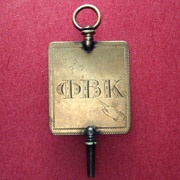
CORE + EDUCATION
MIT chapter of the Phi Beta Kappa Society inducts 80 graduating seniors
The Phi Beta Kappa Society, the nation’s oldest academic honor society, held its MIT induction ceremony on Thursday, June 4, admitting 80 graduating seniors into the MIT chapter, Xi of Massachusetts.
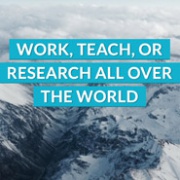
EDUCATION: INTERNATIONAL
Five MIT students win MISTI Excellence Awards
MIT SHASS-based MISTI, the Institute’s groundbreaking program in applied international studies, presented its annual Excellence Awards to five students on Friday, June 5, in a ceremony in Kirsch Auditorium. MISTI prepares students to become informed, engaged participants in work and research opportunities in more than 20 countries. Training includes everything from workplace etiquette to the language, politics, and history of the country.
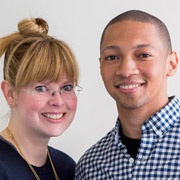
EDUCATION: INCREASING DIVERSITY
MIT grad students organize summer institute to increase diversity in the philosophy field.
The academic pursuit of philosophy (like many other fields) has a serious diversity problem. To help remedy the issue, three MIT philosophy graduate students have organized an innovative program that brought a diverse cohort of undergraduates to the MIT campus this summer, where the students explored the full range of options for pursuing an academic career in philosophy.
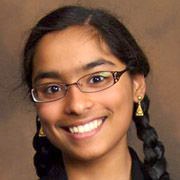
EDUCATION: STEM + SHASS
MIT undergrads launch national competition
A national competition for high school students, founded and led by MIT undergraduates, held its inaugural conference in April 2015 at MIT. The competition was for research in the humanities, arts, and social science fields.
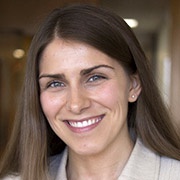
CORE: EDUCATION
MIT Political Science graduate student awarded a NSF Fellowship
Rachel Odell, a first year graduate student, has won a National Science Foundation Graduate Research Fellowship for 2015. Each of fellow is awarded a three-year stipend for both the student and research institution.
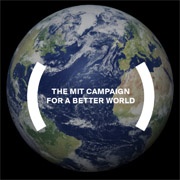
The MIT Campaign for a Better World
Announcing the new comprehensive campaign, MIT President L. Rafael Reif said, "Humanity faces urgent challenges — challenges whose solutions depend on marrying advanced technical and scientific capabilities with a deep understanding of the world's political, cultural, and economic complexities."
Discover the role of MIT's Humanities, Arts, and Social Sciences fields in solving the economic, cultural, and political dimensions of global issues, and in problem-solving in collaboration with our STEM colleagues.

HEALTHCARE
Interview with Seth Mnookin about Vaccination and Public Health
MIT SHASS News: What do you see as the ideal situation for vaccination and public health, and what efforts do you think will be involved in getting closer to that condition?
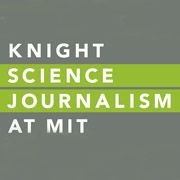
ADVANCING POLICY: PUBLIC ENGAGEMENT WITH SCIENCE
The Knight Science Journalism Fellowships at MIT
Meet the Knight Science Fellow for 2014-2015. This year MIT's Knight Science Journalism program welcomed 11 acclaimed journalists who investigate topics ranging from phenology and climate change, to medicine and human health, to quantum mechanics to hone their science reporting skills. In this article, the Fellows offer their insights on the challenges and rewards of their field.

COLLABORATION
Political Science and EECS join forces for new "Elections and Voting Technology" course
Ensuring that elections are fair and equitable is fundamental to democracy—yet easier said than done, as MIT students discovered in a new class called "Elections and Voting Technology." The class is taught jointly by Charles Stewart III, Kenan Sahin Distinguished Professor of Political Science, and Ronald Rivest, Vannevar Bush Professor of Electrical Engineering and Computer Science.
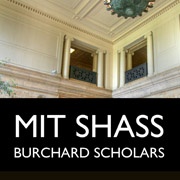
CORE + EDUCATION
35 Burchard Scholars announced for 2015
The award honors sophomores and juniors who demonstrate academic excellence in the humanities, arts, and social sciences, as well as in science and engineering. “The Burchard scholars are some of MIT’s liveliest undergraduates,” says Margery Resnick, professor of literature and director of the Burchard Scholars Program. “Selection is extremely competitive, and the students chosen are unafraid to wrestle with new ideas.”
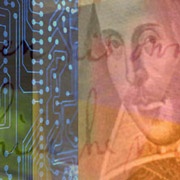
EDUCATION
Bringing Science and Humanities Together - Promise and Perils
"What does it mean to converge science and humanities? why do we want to do this? and what would it take to succeed? Here I will sketch out the beginnings of an answer."
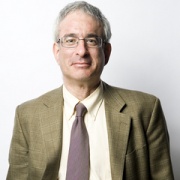
BASIC RESEARCH + SOCIAL INNOVATION
The “metrics” system
Economist’s new book teaches how to conduct cause-and-effect studies on complex social questions.

SOCIO-TECHNICAL COLLABORATION
MIT SHASS at SOLVE
An October 2015 conference on the MIT campus marked the launch of SOLVE — an MIT project dedicated to generating ongoing thinking, research, and collaboration to solve the world's toughest problems. Meet MIT SHASS participants in some of the initial events.
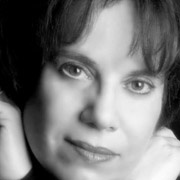
CORE
Pulitzer Prize-winning journalist Deborah Blum to lead Knight Science Journalism at MIT
Pulitzer Prize-winning journalist Deborah Blum will join MIT in 2015 as the director of Knight Science Journalism at MIT, a fellowship program that enables world-class journalists to spend a year at MIT studying everything from science, technology, and engineering to history of science, literature, policy, and political science.
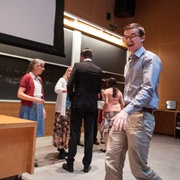
EDUCATION: DISTINGUISHED STUDENTS
MIT chapter of the Phi Beta Kappa Society inducts 89 graduating seniors
The Phi Beta Kappa Society, the nation’s oldest academic honor society, held its MIT induction ceremony on Thursday, June 5, admitting 89 graduating seniors into the MIT chapter, Xi of Massachusetts.
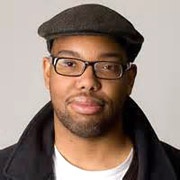
MAKING A JUST SOCIETY
Writer Ta-Nehisi Coates dazzles during two years as Visiting Scholar
“What I tell my students is that you here at MIT have access to great knowledge—more knowledge than 99.9 percent of people who have ever been on planet Earth, and I think you have some sort of moral duty to learn how to communicate that. Knowledge is power; power shouldn’t be hoarded.”
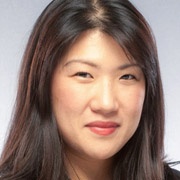
EDUCATION: LANGUAGE AND GLOBAL ENGAGEMENT
MIT students find fluency in languages is transformative
How important is it for MIT students to become fluent in new languages as they expand their horizons and prepare to serve the world? Amanda von Goetz's story is a good example: mastering Russian has proved to be a transformative experience in her life — not just once, but several times over.

MEET THE BILINGUALS
Laura Meeker '14 | Engineering + Humanities
Le Morte d'Arthur and the Engineer
In the fall of 2013, after having taught "Medieval Literature: Legends of Arthur" at MIT for six years, Arthur Bahr took a leap of faith. Instead of a final paper, he gave his students the option to turn in a creative project about Sir Thomas Malory’s Le Morte d’Arthur. “These are MIT students," says Bahr, Associate Professor of Literature."They’re makers. Mens et manus, right?”
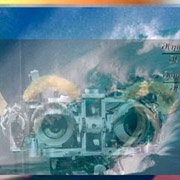
EDUCATION: ENGAGEMENT WITH SCI/TECH
SHASS convenes event with leaders in Science Engagement field
This fall, MIT gathered 75 top practitioners from across the field at the "Evolving Culture of Science Engagement" event to take the measure of the potentials in the convergence of science, education, and entertainment.

INNOVATION + EDUCATION: DIGITAL HUMANITIES
Gallery of Digital Humanities at MIT
The work going on in digital humanities and new media is one expression of the innovation that characterizes the Humanities more broadly. Using computational tools and methods, MIT humanities scholars are opening new lines of research and discovery, revitalizing the study of objects from the past, and asking questions never before possible.
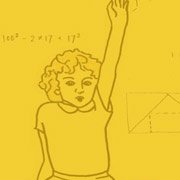
SOCIAL INNOVATION: EDUCATION
Hard Math = Powerful Fun
Six years ago when MIT economist Glenn Ellison volunteered to coach his daughter Caroline’s middle-school math team, he hardly realized he would soon become a leading authority in the niche market of advanced mathematics textbooks for elementary- and middle-school students.
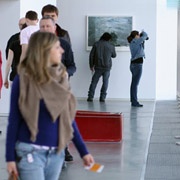
INNOVATION + EDUCATION: DIGITAL HUMANITIES
Class on digital humanities premieres with tech-savvy approach
First offered in the Spring 2013 term, and taught by Professor James Paradis and Principal Research Associate Kurt Fendt, both of Comparative Media Studies/Writing, "Digital Humanities: Topics, Techniques, and Technologies" (CMS.633), gave MIT students the chance to pair technical know-how with real-world humanities projects — such as designing innovations for the Institute of Contemporary Art Boston (ICA), and the Isabella Stewart Gardner Museum.
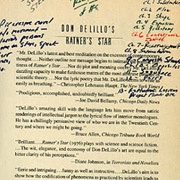
INNOVATION: EDUCATIONAL + ARTS TOOLS
"Annotation Studio" translates an ancient literary practice into the digital age
Annotation Studio, a digital humanities project developed by HyperStudio, promises to improve upon traditional techniques for entering marginalia and side notes in books — enabling readers not only to annotate texts across media, but also to share comments with others and to enhance them with links, images, video, and audio.
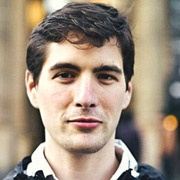
INNOVATION + EDUCATION: HUMANITIES MOOCS
Wi-Phi online video platform presents "philosophy's greatest hits"
A little philosophy could go a long way toward making the world a better place, says Damien Rochford, Ph.D. ’13, who has co-launched the Wi-Phi, an online, interactive philosophy website. The site presents more than a dozen short entertaining video animations to accompany talks by top scholars on such timeless questions as whether humans have free will, whether god exists, and what is it for a sentence to be true. The goal is for people to learn how to do philosophy, rather than simply learning what philosophers have thought, so the site focuses on developing critical thinking skills.
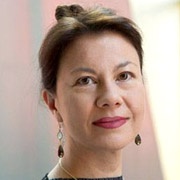
EDUCATION: MIT'S FINEST TEACHERS
Profile of Emma Teng | MacVicar Faculty Fellow
Emma Teng, T.T. and Wei Fong Chao Professor of Asian Civilizations and an associate professor of China studies, relishes the unique atmosphere within MIT that fosters multidisciplinary collaboration. And through her research and teachings about Asian and Asian-American identities and histories, Teng helps her students challenge their own assumptions, an exercise that she hopes extends beyond the classroom.

CORE: EDUCATION
Burchard Scholars for 2013 announced
MIT’s School of Humanities, Arts, and Social Sciences has named 32 undergraduate students as Burchard Scholars for 2013. The award recognizes sophomores and juniors who have demonstrated outstanding abilities and academic excellence in some aspect of the humanities, arts, and social sciences, as well as in science and engineering.
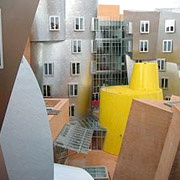
CORE: EDUCATION
MIT Philosophy has extraordinary success placing PhD grads in top tenure-track positions
Consistently ranked among the top ten philosophy departments in the country, MIT’s small Philosophy section—just 12 full time professors—has extraordinary success in placing PhD graduates in tenure-track positions at top philosophy programs nationwide. The Leiter Reports placed MIT second in grad student placement. (New York University, a program nearly twice as large, was first). Because obtaining a faculty position in philosophy is notoriously difficult—often 700 applicants for every appointment—many are wondering: what is the secret of MIT’s outsized success?
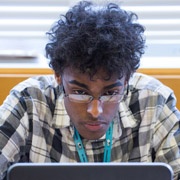
CORE: EDUCATION
School Within a School: MIT's Concourse learning community
The single best thing about college for MIT Professor of History Anne McCants was "exploring ideas ravenously." It was like being in a candy store for four years,” she says. Now, as newly appointed director of Concourse, a learning community for MIT freshmen, McCants says her goal is to give today’s students the same heady experience of intellectual adventure and discovery within the context of a supportive group.
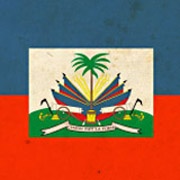
Q&A with linguist Michel DeGraff
On the role of language in education and economic development
MIT Associate Professor Michel DeGraff recently received a $1M grant from the NSF for research to develop tools to teach STEM subjects in Haitian Kreyòl—part of a larger, transformative project to use Kreyol, the language Haitians actually speak, in the country's classrooms. In this interview, DeGraff speaks about his vision, and how the project is a model for teaching in other local languages around the globe.
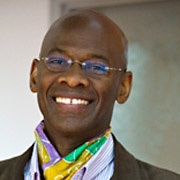
RESEARCH TO POLICY: EDUCATION
DeGraff awarded $1m NSF grant
Michel DeGraff, Associate Professor of Linguistics, is the Principal Investigator for a five-year project that will help develop classroom tools to teach science and math in Haitian Creole for the first time.
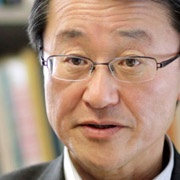
CORE + EDUCATION
Shigeru Miyagawa receives President's Award from the OCW Consortium
MIT linguistics professor Shigeru Miyagawa has been selected to receive the President's Award for OpenCourseWare Excellence (ACE) for his contributions to the global OpenCourseWare and Open Education movements. Miyagawa, a key member of the faculty team that nurtured the development of MIT OpenCourseWare (OCW), has contributed a significant amount of his own course materials to the site, and has traveled extensively to spread the practice of openly sharing educational materials globally.
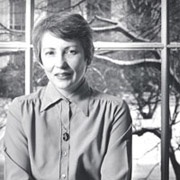
CORE: EDUCATION
Broadhead, Kaiser, Rose named 2012 MacVicar Faculty Fellows
Four professors have been named 2012 MacVicar Faculty Fellows for their outstanding undergraduate teaching, mentoring and educational innovation. Three are from SHASS: William Broadhead, the Class of 1954 Career Development Associate Professor of History; David Kaiser, the Germeshausen Professor of the History of Science; and Nancy Lin Rose, the Charles P. Kindleberger Professor of Applied Economics. The fourth professor honored is Leslie Pack Kaelbling, the Panasonic Professor of Computer Science and Engineering.
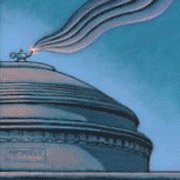
CORE: MIT'S FINEST TEACHERS
Gallery | The MIT SHASS MacVicar Faculty Fellows
Photographs, research areas, and commentary from SHASS faculty who are among the Institute's finest educators
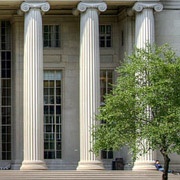
CORE: MIT'S FINEST TEACHERS
Meet the MacVicars of MIT SHASS
The SHASS MacVicar Faculty Fellows discuss the significance, the goals—and the sheer fun—of teaching MIT students.

SOCIAL INNOVATION + EDUCATION
Communication Forum conducts a conversation for scholars, citizens
How are new technologies transforming public discourse? Are traditional news outlets still influential in framing the news we get online? What are the legal dangers for publishing secrets in the crowd-sourced era? Founded in 1978 by pioneering media scholar Ithiel de Sola Pool of MIT’s Political Science Department, the forum engages leading scholars, journalists, media producers, and citizens in discussions on emerging media in a changing world.
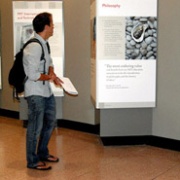
EDUCATION
Great Ideas exhibit opens in Building 14
The installation, which officially opened in October 2011, presents a tour of the School’s fields of study—from Anthropology to Economics to Wrting—as well as news, profiles, and research briefs.
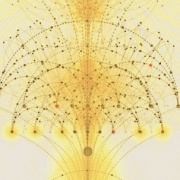
Great Ideas exhibit features MIT research in the humanities, arts, and social sciences
For MIT's 150th anniversary, Dean Deborah Fitzgerald and the School leadership initiated a new permanent exhibit about the School of Humanities, Arts, and Social Sciences. Located on the first floor of Building 14, near Killian Hall, the exhibit presents the 20+ fields of study that make up the School, as well as an updating gallery of research, news, and profiles.
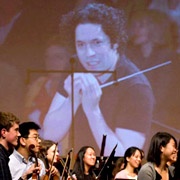
ARTS INNOVATION + EDUCATION
Report cites arts as essential to MIT's mission
The arts at MIT connect creative minds across disciplines and encourage a lifetime of exploration and self-discovery. Rooted in experimentation, risk-taking and imaginative problem-solving, the arts are essential to MIT’s mission.
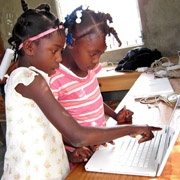
RESEARCH TO POLICY: TRANSFORMING HAITIAN EDUCATION
A champion of Kreyol for Haitian schools
Linguist Michel DeGraff is on a quest to give Haitian Creole its due as a respected language — and to help Haitian schoolchildren learn in their native tongue.
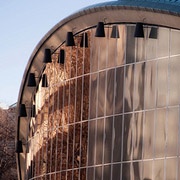
RESEARCH TO POLICY: ECONOMICS
Economics Symposium launches MIT's 150th celebration
This symposium, organized by the School's Department of Economics and the Sloan School of Management, celebrated the role of MIT’s faculty and students in advancing the fields of economics and finance, in putting the latest developments into practice, and in contributing to the design of public policy.
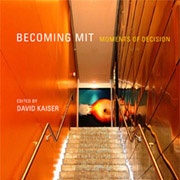
EDUCATION
Kaiser and Alexander create books for MIT's 150th anniversary
MIT150 and MIT Press have partnered to bring out two books for MIT's sesquicentennial year—both works authored by members of the School of Humanities, Arts, and Social Sciences. David Kaiser, Professor in Science, Technology and Society, is the editor of Becoming MIT: Moments of Decision. Philip Alexander, of the Program in Writing and Humanistic Studies, is the author of A Widening Sphere: Evolving Cultures at MIT.
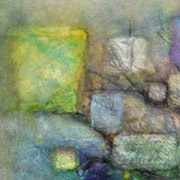
EDUCATION: ROLE OF THE HUMANITIES
How America Invented the Humanities
Geoffrey Galt Harpham, President and Director of the National Humanities Center reviews that history of hte humanities as a collection of academic disciplines invented by the American academy during the post WWII culture of the United States.

Why I am a history major at MIT
Excerpt from MIT Admissions Student Blog | Guest Blog by Dora '11, double major in course 8 and Ancient and Medieval Studies. She writes: "There are lots of people here who love the humanities, and who approach subjects in humanities with the same excitement and fervor that they approach their technical fields.... humanities at MIT carries a distinctly MIT feel: challenging, stimulating, and entirely fulfilling.
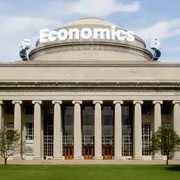
CORE
School's Economics Department ranked first in nation
MIT is ranked as top graduate school for Economics in the US News and World Report on the best graduate schools in the nation.
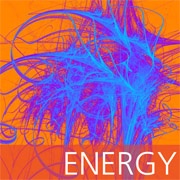
HEALTHY PLANET: SHASS ENERGY STUDIES
School offers courses for Studies in Energy Minor
MIT's energy minor provides a multidisciplinary approach to understanding the policy, economics, science and technology of energy. All MIT undergraduate students now have a new academic option available: a minor in energy, which can be combined with any major subject. The minor is inherently cross-disciplinary, encompassing all of MITs five schools. SHASS-based courses include: Environmental Policy and Economics; Energy Economics and Policy; and Energy, Environment, and Society.

RESEARCH TO POLICY: CHARTER SCHOOLS
Why do some charter schools do so well?
MIT economists researching why some Boston charter schools have been able to produce stunning results. What they discover could serve as a lesson for America’s struggling public schools.

EDUCATION: GLOBAL ENGAGEMENT
Mens et Manus et Mundus:
MIT Global Council plan for international education
A September 2009 report from the MIT Global Council outlines an historic opportunity to deepen international learning at the Institute, and to make international education a core component of an MIT education.
